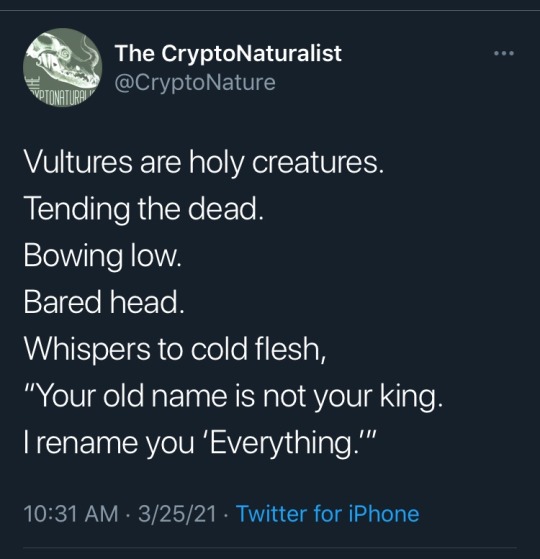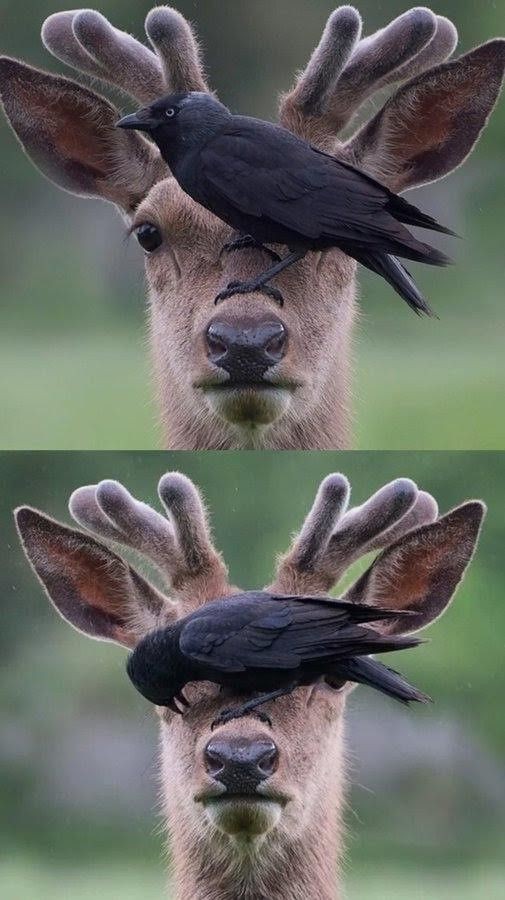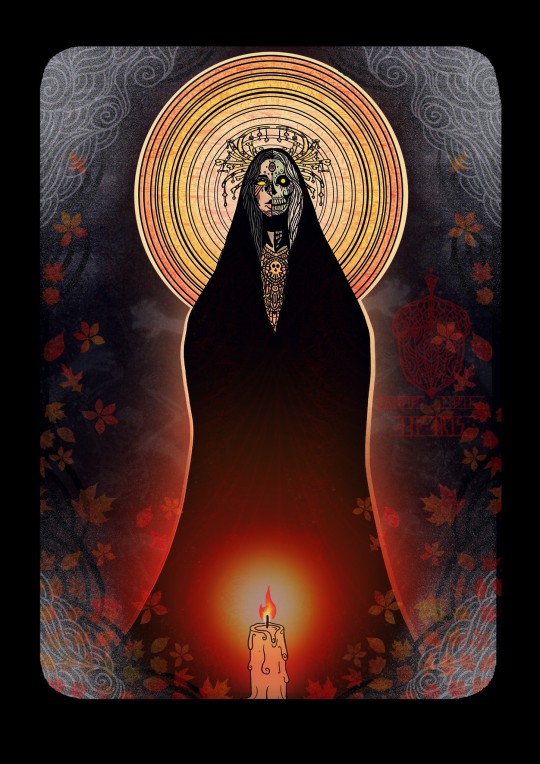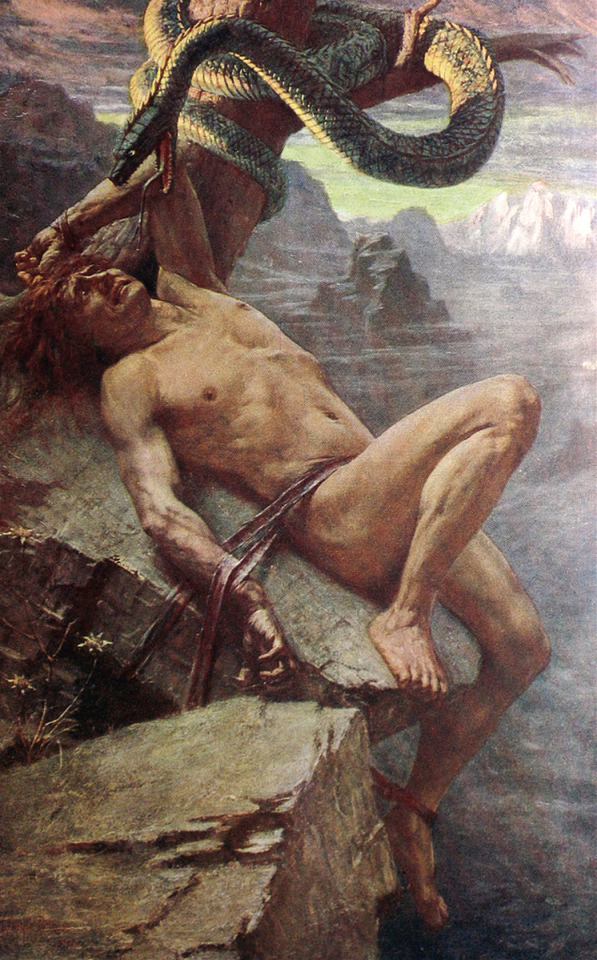Text

Chillin' with the Highland crew in the Scottish countryside 🐮
253 notes
·
View notes
Note
odd question: did the norse people ever worship or venerate the warriors of Valhalla? or was it just a goal to aspire to?
The Old Norse people worshipped their ancestors, some of which went to Valhalla, and some who were definitely heroes. But I don't think they worshipped "the warriors of Valhalla" as an archetype, or as paragons to emulate. Valhalla wasn't even viewed as a goal to aspire to. Rather, it was a consolation prize for dying far from home.
Prior to the Viking Age, the Norse people believed they rejoined their family and ancestors after they died. However, this was dependent on the fact they would be buried in the family grave or barrow.
But going a-viking meant risking death far from home, and this death would most likely happen while out at sea or during a skirmish.
In order to reconcile the question of "Where do we go if we can't be with our families?", the Norse people concluded that if they died out at sea, they went to Njord's hall, and if they died in a skirmish, they went to Odin's or Freyja's hall. This way, they had the comfort of knowing they would still be with their gods and people if they perished far from home.
It's important to keep in mind that the vikings were not exactly a warrior class; as in, "being a warrior" wasn't their job. They were pirates. And like all pirates, their goal was to retrieve goods, either by trade or by raid. Most vikings had every intention of making it home alive, and just like being a skilled sailor improved these odds, so did knowing how to put an axe through a man's skull.
Dying while going a-viking was honorable for the same reason that successfully returning home with goods was honorable; it's the fact that a person risked their life to travel very far away and gather resources for their family and community. It's an honorable deed.
But just because this death was honor-worthy doesn't mean it was a goal.
First of all, let's consider the practical aspect here: In a pre-industrial era, no one in their right mind would waste an entire ship on a crew that didn't plan to come back in it.
Secondly, "dying gloriously on the battlefield" only has widespread cultural importance in imperial nations; nations motivated by dominion, conquest, and establishing their widespread rule. Not only were the Norse societies not imperial, they didn't even have a centralized military, let alone the manpower to fight the rank-and-file wars we associate with the term "war."
So I guess the short answer to your question is "neither." Heroes were definitely venerated, but the notion that becoming ulfhednar makes someone the worthiest of all worthies is a retroactive interpretation.
348 notes
·
View notes
Text
Tonight is the beginning of jólablót for most heathens who observe a lunisolar calendar. The timing is determined by "the first full moon following the first new moon following the solstice." The new moon was immediately after the solstice, making this about as early as a lunisolar jólablót can be.
According to Heimskringla:
Hann setti þat í lögum at hefja jólahald þann tíma sem kristnir menn, ok skyldi þá hverr maðr eiga mælis öl, en gjalda fé ella, en halda heilagt meðan jólin ynnist. En áðr var jólahald hafit hökunótt, þat var miðsvetrar nótt, ok haldin þriggja nátta jól.
'He [King Hákon] made it law to hold Yule at the same time as Christians and each man was to have a measure of ale or else pay a fine, and observe for the duration of Yule. But before, Yule was held on hökunótt, that was midwinter night, and yule was held for three nights.'
Most modern recreation of the lunisolar calendar is built primarily on the work of Stockholm University professor Andreas Nordberg's paper Jul, disting och förkyrklig tideräkning ('Yule, Disting and pre-Christian Time-Reckoning'; paper is in Swedish but with a substantial English summary at the end) though usually not identical to Nordberg's reconstructions. The lunisolar calendar associated with the Nordic Animism movement and the Year of Aun (not exactly the same as Rune Hjarnø Rasmussen's The Nordic Animist Year) is more directly informed by Josh Rood in his paper The Festival Year: A Survey of the Annual Festival Cycle and Its Relation to the Heathen Lunisolar Calendar.
Read more about the Year of Aun, named for the legendary Swedish king who extended his own life by sacrificing his sons, on the Nordic Animism website and on Rune Hjarnø Rasmussen's YouTube channel.
153 notes
·
View notes
Text

Vultures are holy creatures.
Tending the dead.
Bowing low.
Bared head.
Whispers to cold flesh,
“Your old name is not your king.
I rename you ‘Everything.’”
229K notes
·
View notes
Text
Lokean Links - Rebloggable Version
Myths Featuring Loki:
The Poetic Edda - main index
Shortcut to poems from the Poetic Edda featuring Loki:
Völuspá: The creation myth, Ragnarok, and such
Þrymskviða: Loki and Thor crossdress to get Mjolnir back
Reginsmál: Loki pisses off a dwarf and inadvertently causes the Volsung Saga
Lokasenna: Loki crashes a party and challenges the gods to a rap battle
Völuspá hin skamma: Loki eats a witch’s heart and becomes the “father of all monsters”
The Prose Edda - main index
Shortcuts:
Skáldskaparmál: The abduction of Idunn by Thjazi, Loki tying his balls to a goat to entertain Skadi, the creation of Mjolnir, the seal fight with Heimdall over Freyja’s necklace
Gylfaginning: The birth of Sleipnir, Loki’s binding, the visit to Útgarða-Loki
Other:
Loka Táttur: Loki rescues a kid from a giant
Keep in mind that these translations are public domain due to their age, so a lot of the scholarship in the annotations is outdated. We recommend a newer translation of the Eddas if at all possible.
Other Primary Sources:
Icelandic Saga Database
Sacred Texts
Northvegr (defunct but archived)
Thorraborinn’s List of Primary Sources
Recommended Edda Translations
Audiobook versions of the Eddas
Various Retellings:
The Theft of Idun’s Apples - a retelling
The Abduction of Ithunn (audio)
That one time Loki cut off Sif’s Hair
The continuation of that ^
The Building of Asgard’s Wall
Loki’s Flyting and Binding (audio)
Articles, eShrines, and Useful Loki Posts:
Wikipedia Entry on Loki - Surprisingly accurate for Wikipedia. Go nuts!
Loki in Scandinavian Mythology
Loke in Younger Tradition
Loki, the Vätte, and the Ash Lad
Lokrur, Lóðurr and Late Evidence
A Little Bit of Lokrur: A Portion of an Old Icelandic Mythological Poem and a New English Translation
Lokean Book List
Loki in the Archaeological Record
Loki as a Queer God
Dealing with Nokeans
Temple of the Flea
Lokaheim
Lokean Playlists
Info on Heathenry and Norse Myth in General:
GLE’s Frequently Referenced Posts
Lokavinr’s Master List
Hedendom’s Resources
Fuck Yeah Norse Mythology’s Resources
Thorraborinn’s List of Secondary Sources
Heathen Terms and Concepts
Jackson Crawford’s YouTube Channel
Huginn’s Heathen Hof
Books to Avoid
Old Norse Pronunciation Basics (text)
Pronunciation of Old Norse (video)
Pronunciation of the Gods’ names (video)
Homosexuality and Gender Roles in the Viking Age
The Valkyrie Squad’s List of Non-Folkish Heathen Blogs
Other Lokean Blogs:
Grumpy Lokean Elder - a truly awesome resource!
Lokavinr - another awesome resource!
Lokisday - great insights from a new Lokean
Skytreaderdances - Miscellaneous Loki-related goodies
3K notes
·
View notes
Text

Yohji Yamamoto S/S 1998
Maggie Rizer | ph. Inez & Vinoodh
708 notes
·
View notes
Text
it's rotten work, but without the rot nothing can grow
112K notes
·
View notes
Text
new riddle idea: what did the victory god sing in the famed wolf's throat before the world became a pyre
14 notes
·
View notes
Text
I will love you like the lichen, tracing slow and gentle up your back-- and I will love you like river moss, soft-brush-springing at your pulse-- and I will love you like grass and the saplings and the serpent-sweet-canes, flush with winding, twining life. I'll give you seeking, rooting, the kind of growing that makes our love a home. I'm afraid you'll have to get used to all my little loves— but you always did look good in green.
2K notes
·
View notes
Text
it's rotten work, but without the rot nothing can grow
112K notes
·
View notes
Text
I’m having a lot of feelings towards Angrboða right now so:
Tonight I raise my glass to the Wolf Mother, Wild Witch, She who makes my blood roar in my veins and my heart howl with the Moon.
34 notes
·
View notes





